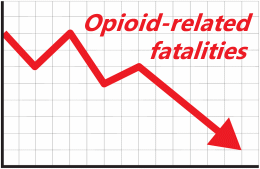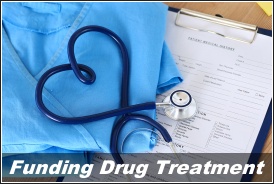 Various news outlets are reporting new statistics which indicate deaths from opioid overdose are beginning to go down.
Various news outlets are reporting new statistics which indicate deaths from opioid overdose are beginning to go down.
The Associated Press reports that for the first time in a decade overdoses among New York residents (outside of NYC) have declined 15.9%. Government officials are quoted as saying that about 80% of the overdose deaths were attributable to heroin or fentanyl.
The AP cited a new CDC (Centers For Disease Control) July 2019 study which showed overdose deaths in 2018 fell for the first time in nearly three decades.
Various public education efforts and New York’s Opioid Task Force are thought to be significant catalysts for the slowdown in opioid overdoses. The availability of naloxone has also been highly instrumental in impacting overdoses nationwide with many communities across the country now providing naloxone kits for free.
A number of metro areas in the U.S. are also examining the feasibility of mobile opioid treatment since transportation to clinics or physicians is often an impediment to accessing medication-assisted treatment resources.

 Follow
Follow

 President Obama recently attended the National Prescription Drug Abuse and Heroin Summit in Atlanta, Georgia. Professionals and concerned citizens used the forum to explore ways to address America’s rising opioid addiction problem.
President Obama recently attended the National Prescription Drug Abuse and Heroin Summit in Atlanta, Georgia. Professionals and concerned citizens used the forum to explore ways to address America’s rising opioid addiction problem. NBC News
NBC News


